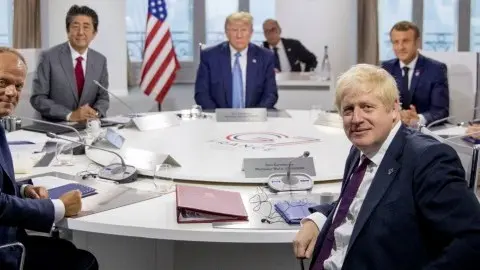Trade war: A turn for the worse
Although later than initially thought, we still expect a deal between the US and China
A deal before year end is likely to not be in the cards anymore
President Trump has ramped up the pressure on China with tariff hikes, but so far without success. The deterioration in the negotiating climate leads us to tweak our outlook. A deal before year end is no longer our base case.
We think China will stand firm in its rejection of some US demands. It will not accept any deal that limits its autonomy in making laws regarding the protection of intellectual property. Neither will it accept interference in setting goals, like the intention to become a world leader in certain high tech markets. Further, China demands that all the tariff hikes are undone once a deal is cut.
President Trump will need to compromise given the economy is slowing
Over time, President Trump is likely to become aware that his high pressure strategy has not been effective. To be able to claim that he is delivering on his promise to improve the terms of trade for the US, Trump needs to show voters that he is capable of striking deals. For this, he needs to compromise.
Right now, we don’t see many signs that President Trump is prepared to scale down his demands enough for a deal before year end.
However, we expect this will change. We forecast the US economy will slow down in the coming quarters and we think it’s likely that the trade war will be blamed for that. We expect this to translate into polls moving against President Trump, which will encourage him to water down some of his demands.
We expect a deal at the start of the second quarter of 2020
We think this will lead to a deal at the start of 2Q20. We expect it to encompass a commitment by China to import at least $70 billion more from the US, to lower import tariffs and to open markets for foreign (majority) investing. On the issue of intellectual property, we expect an agreement whereby China steps up its fight against the theft and forced transfer of intellectual property. But we suspect it will not offer any provisions which could give the US a stick to beat it with if President Trump is not satisfied with the progress.
We expect half of the tariff hikes that have been implemented by both sides will be reversed immediately in 2Q next year. The remainder will be phased out gradually during 2020 and 2021, provided that both sides agree that the other side has complied with the deal.
Trump is likely to refrain from a trade war with the EU
It is a close call but we assume that President Trump will refrain from a trade war with the EU before the 2020 presidential elections. We don’t doubt that President Trump would like to impose tariffs on European cars, as it would give him leverage in the negotiations. However, given our expectations that public sentiment about the trade war is set to deteriorate, we think he won’t want another risk, which could potentially hurt his chances of being re-elected.
This publication has been prepared by ING solely for information purposes irrespective of a particular user's means, financial situation or investment objectives. The information does not constitute investment recommendation, and nor is it investment, legal or tax advice or an offer or solicitation to purchase or sell any financial instrument. Read more
Download
Download article
6 September 2019
September Economic Update: Getting real on ‘‘no-deal’’ This bundle contains 9 Articles